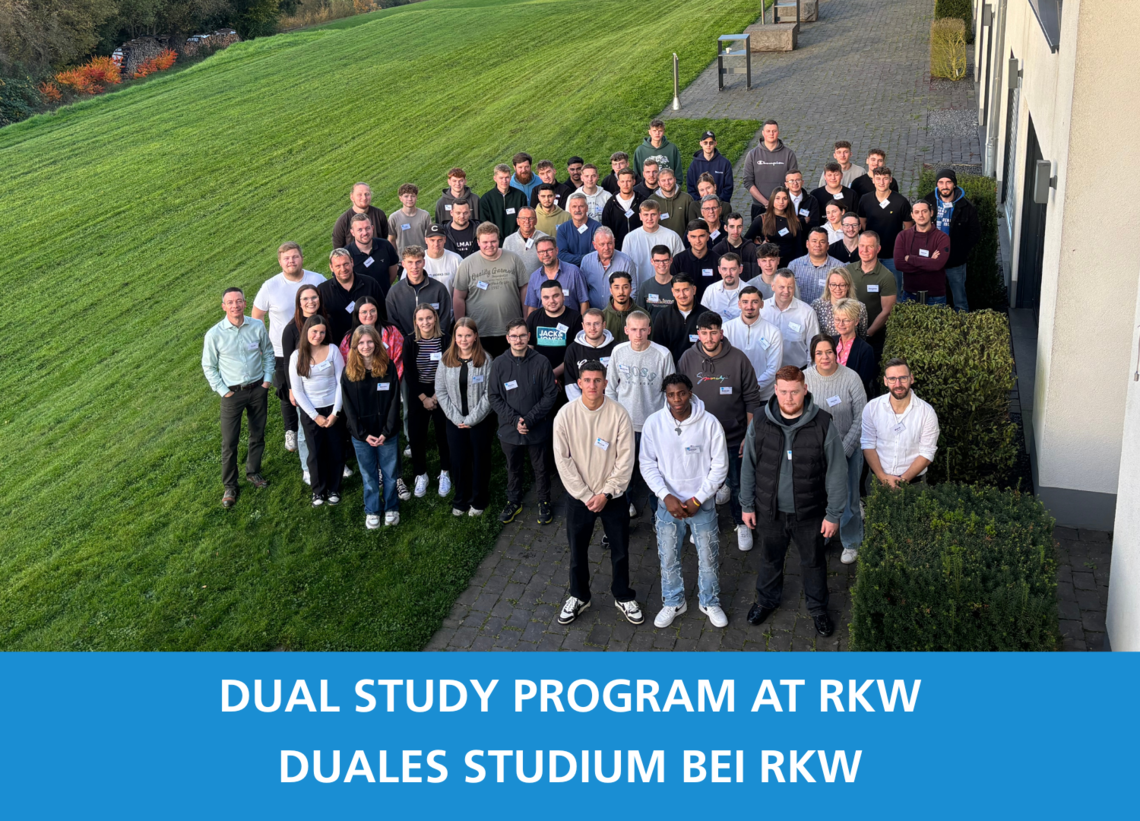Dual study program at RKW – The perfect combination of theory and practice
Lena and Jan Ole are dual students at our Echte site. Lena began her bachelor's degree in Business Administration in 2024, and Jan Ole joined in 2023. Both talk about their experiences, what they appreciate about the dual study program, and the challenges they face.
What is a dual study program?
The dual study program combines two place of learning: the university and the company with valuable practical experience. Students are employed by the company and, similar to an IHK apprenticeship, spend time working in the company and attending classes at the university. At our Echte site, RKW offers a dual bachelor's degree program in Business Administration with a standard duration of three years. During the practical phases, our students get to know various commercial departments and thus gain valuable insights into the world of work.
In contrast to block teaching, theory and practical days alternate at RKW. On some days, students spend the whole day at the company, while on others they do work-related tasks in the morning and attend lectures in the afternoon or evening. Classes take place all day on Fridays. During the semester breaks, students work full-time at the company and deepen their practical knowledge.
What are the biggest advantages and challenges of combining work and study?
Both like the practical aspect best: “There is a high degree of practical relevance, so you can apply what you have learned in your daily work. In the individual departments, we are trusted to take on responsibility. This teaches you to work independently and gets you involved in the processes of the departments.” Both also emphasized that they greatly appreciate the support of their colleagues.
Lena reports: “We can pass on our experiences to interested parties at apprentice/job fairs and thus play an active role in attracting new trainees and dual students to the company.”
Jan Ole adds to the challenges: ”Due to the double burden of university and work, good time management is particularly important, especially during the exam period.”
A dual study program requires more time than a full-time degree program. Lena and Jan Ole agree that it is important to find the right balance between work, study, and learning.
What advice would you give to future dual students or those interested in the program?
Jan Ole: “With initiative, interest and commitment, you can make a real impact even as a trainee. It’s important to stay open to new challenges and have the courage to take on a dual study program—because it helps you grow not only professionally, but also personally.”
Students are free to choose their own topics for their bachelor's thesis and can focus on their area of interest. The topic is further developed together with the specialist department, with support and often suggestions for topics from the team. An additional tip: “Take advantage of the opportunity to talk to former dual students! They can give you valuable advice and tell you about their experiences, which will be enormously beneficial for your own thesis.”
